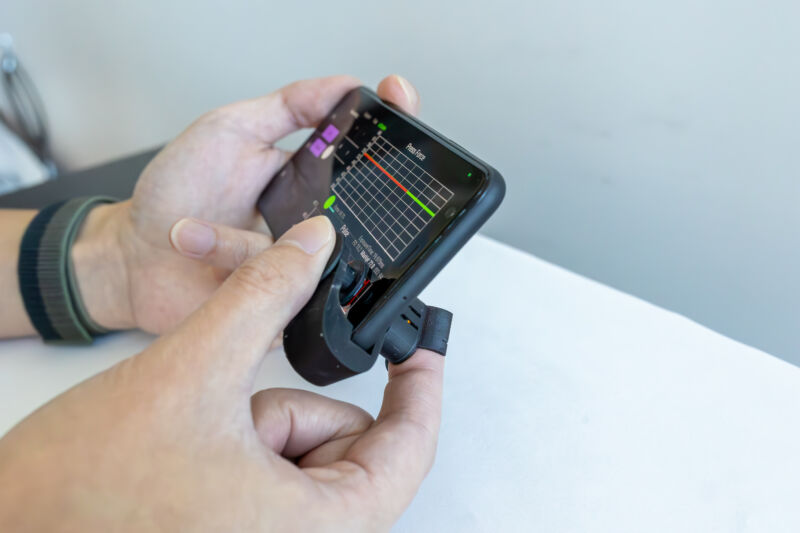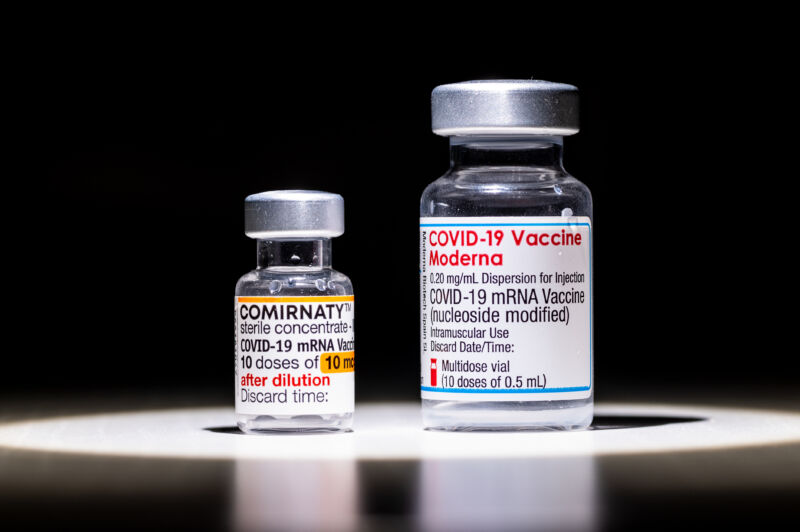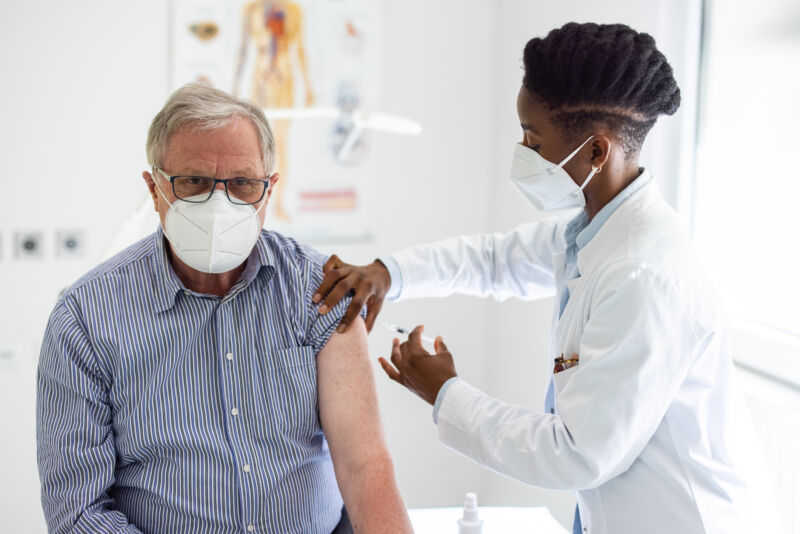-
 chevron_right
chevron_right
Ultra low-cost smartphone attachment measures blood pressure at home
news.movim.eu / ArsTechnica · Friday, 16 June, 2023 - 17:16

Enlarge / The BPClip in action. (credit: Yinan Xuan et al.)
Given that 47 percent of adults in the US alone have hypertension, keeping on top of your blood pressure readings is a smart thing to do. And doing so could become much more convenient, requiring nothing more than your phone and an $0.80 piece of plastic, thanks to new research from the University of California, San Diego.
The school's device, called BPClip, gives broadly comparable readings to those taken with a traditional cuff but functions as a simple cell phone attachment. It relies on the flashlight and the smartphone’s camera—along with some simple physics.
BPClip consists of a plastic clip with a spring mechanism that lets the user squeeze the device and two light channels: one to direct a flashlight to your finger and the other to direct the reflected light to the camera for image processing. A custom-made Android app handles the data processing and guides users through the measurement.








